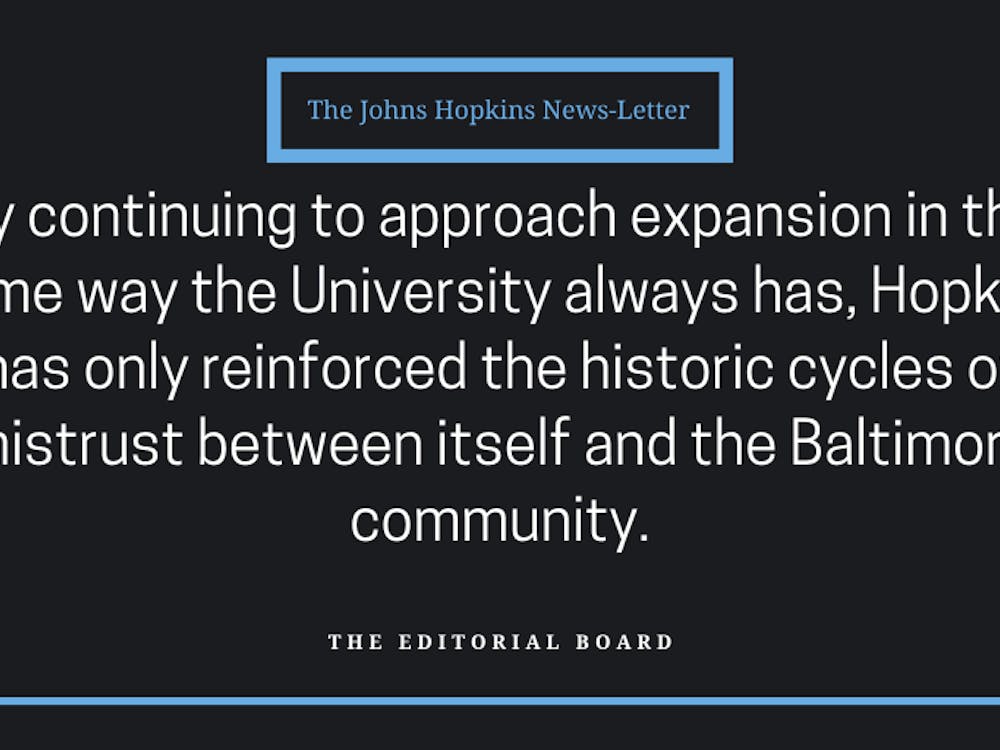The issue of marriage equality has long been a thorny subject in the political and social realms. In light of recent protests for and against same-sex marriage, and acknowledging the increasing number of states that are legalizing these marriages, the Editorial Board would like to state that it firmly believes that same-sex marriage should be legalized and that any couple that wishes to obtain a civil marriage license should have the right to do so. We do not think that a marriage should exclusively connote a union between man and woman.
Throughout our history as a nation, the United States has been prioritizing and making huge strides toward equal civil rights for all citizens. In 1868, the 14th Amendment was adopted, barring states from enacting or carrying out laws that “shall abridge the privileges or immunities of citizens of the United States; nor shall any State deprive any person of life, liberty, or property, without due process of law; nor deny to any person within its jurisdiction the equal protection of the laws.” In 1954, Brown v. Board of Education desegregated public schools, declaring that “separate but equal” is unconstitutional and creating equal educational opportunities for students of all races. In 1967, prohibitions of interracial marriage was declared a violation of the Equal Protection Clause in Loving v. Virginia. All of these decisions were a part of a national tradition of striving for equal rights, and legalizing same-sex marriage follows that same trajectory and tradition.
Additionally, we believe that the legal foundation of marriage should not be based upon religion. One of our country’s core founding tenets is the separation of Church and State, and since obtaining marriage licenses is a civil action, marriage in the eyes of the law should be a purely secular institution, and thus, it should not be inhibited by religious objections.
In the 1971 decision in Baker v. Nelson, the Supreme Court of Minnesota found that the “institution of marriage as a union of man and woman, uniquely involving the procreation and rearing of children within a family, is as old the book of Genesis.” This statement provides two salient conclusions: that marriage is designed for procreation, and that marriage must fall under the confines of religious norms. Extrapolating from this quote’s first conclusion, the Editorial Board asks: Should we prohibit a sterile individual from ever marrying? Taking that even further, should we ask childless married couples to divorce in order to keep marriage “pure”? We think the answer to both questions is obviously “No.”
The Supreme Court’s decision in Brown was contrary to much of what the population at the time thought to be moral. Judge Leon M. Bazile wrote in an opinion in 1958, ““Almighty God created the races white, black, yellow, malay and red, and he placed them on separate continents. And but for the interference with his arrangement there would be no cause for such marriages. The fact that he separated the races shows that he did not intend for the races to mix.” Religious rationale has, throughout the course of history, been used to keep groups from being equal.
And yet, engraved above the United States Supreme Court building are the words “Equal Rights Under Law.” Opponents of marriage equality argue that civil unions are sufficient to bestow equal rights to homosexual couples. And yet, the Editorial Board cannot help but be reminded of the famous words penned by Chief Justice Earl Warren: “The doctrine of ‘separate but equal’ has no place.” He called separate institutions “inherently unequal” and a violation of the Equal Protection Clause. The Editorial Board cannot help but come to the same conclusions regarding the institution of marriage.
The Editorial Board believes that banning same-sex marriage abridges the constitutional rights of individual citizens under the Equal Protection Clause and is therefore illegal. Furthermore, because marriage is a legal agreement that offers financial advantages and other conveniences such as consolidating health insurance, by denying citizens the right to marry, states are denying homosexual couples significant privileges that are afforded to other Americans. Restricting eligibility for such a legal agreement for religious reasons violates the principal of the separation of Church and State that our forefathers built this nation upon.
Perhaps even more important than the legal necessity is that the restriction of marriage to a man and a woman is simply unfair and dehumanizing to the non-heterosexual population. It disregards and dismisses the complexity of human relationships and sexuality and entirely ignores the interests of those who do not identify within the gender binary. It creates second-class citizens out of a large portion of the population when they cannot legally enjoy the same rights as others.
The Editorial Board believes that every individual should be treated equally, and as it stands, Americans are being denied equal treatment as citizens of the United States. We adamantly support the legalization of same-sex marriage, following our nation’s tradition of equal rights for all citizens.















Please note All comments are eligible for publication in The News-Letter.